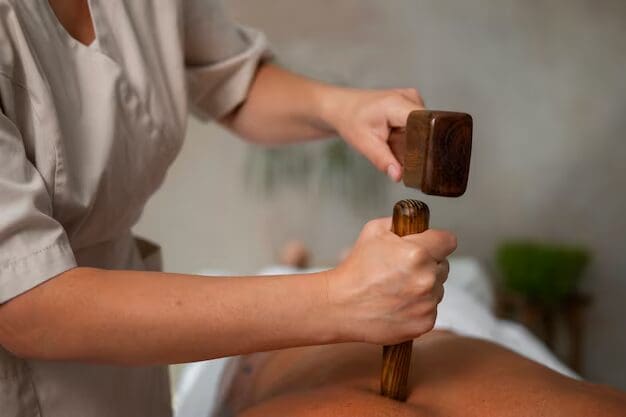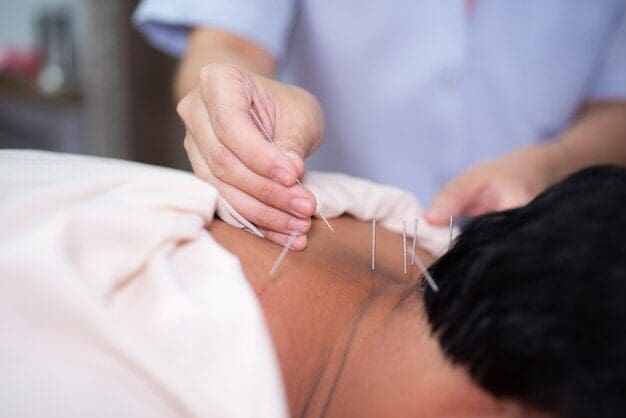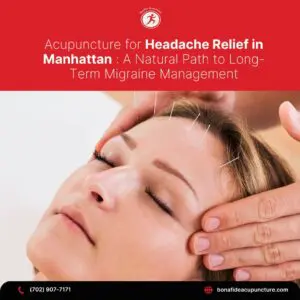The Benefits of Classical Chinese Acupuncture for Mental Health!
Stress, anxiety, and depression – this all takes a huge toll on mental and physical health. True, right? Many people ask themselves these questions – Why am I feeling this way? Or Is it OK to deal with anxiety? Well, the truth is, of course, experiencing anxiety/depression is a common experience that many people face.
But it doesn’t have to be that way. If you think you’re getting too involved in this and it’s getting on your nerves, consider booking an appointment for classical Chinese acupuncture in Brooklyn.
This ancient practice helps people deal with chronic illnesses like generalized pain, stress, anxiety, etc. It addresses not just the symptoms but deal with the causes of stress and emotional distress. Want to learn more about the benefits of classic Chinese acupuncture? Keep reading out the blog post now…
How Does Classical Chinese Acupuncture Work?
Acupuncture has been used as a treatment for chronic diseases for many years. The acupuncture method entails inserting tiny needles into skin nerve points which lay within the upper dermis.
The insertion of needles at nerve points activates the nervous system to stimulate blood flow through the body. The endocrine system activates while hormones readjust to achieve body healing. The nervous system becomes active through treatment yet focuses its healing capacities on multiple areas that require reparative work.
Additionally, classical Chinese medicine recognizes that emotional states can create energetic blocks or excesses that manifest physically. Each organ network is associated with particular emotions – the liver relates to frustration and anger, the heart to anxiety and overexcitement, the lungs to sadness and grief. By smoothing qi flow through organ-related meridians, acupuncture can calm a hyperactive mind.
Benefits of Classical Chinese Acupuncture for Mental Health

An expanding evidence base supports acupuncture as an effective treatment for numerous psychiatric disorders, including:
Anxiety and Depression
Research indicates acupuncture can help decrease signs of anxiety and depression, which occur frequently as mental health disorders.
In structured trials, acupuncture bested talk therapy and medication for treating mild to moderate depression. Participants also experienced fewer side effects than standard pharmaceuticals. For anxiety, acupuncture lessens overactivity in brain areas linked to fear responses while increasing activity in relaxation-associated regions. Those struggling with stress, low mood, excessive rumination, or feeling emotionally bogged down may find relief through acupuncture.
PTSD and Trauma
By calming the nervous system and quieting the fear circuitry in the brain, acupuncture can support healing after psychological trauma. Studies demonstrate acupuncture lessens hypervigilance and flashbacks while improving sleep quality in PTSD patients by elevating calming neurochemicals GABA and neuropeptide Y. Since talk therapy can potentially re-traumatize before one achieves nervous system regulation, acupuncture’s grounding, centering effect makes it an excellent first-line treatment.
Addiction
Substance abuse profoundly disturbs physiology and mind-body equilibrium. Fortunately, NADA (National Acupuncture Detoxification Association) auricular therapy is a time-tested antidote – the protocol involves needling five ear acupoints to control cravings, relieve withdrawal symptoms, prevent relapse, and restore balance. Multiple mechanisms may be at play – acupuncture releases enkephalins to quiet reward pathways, normalizes dopamine and serotonin, and resensitizes receptors dysregulated by drug usage.
Insomnia
In today’s rushed, frantic world, quality sleep is elusive for many. Luckily, abundant evidence confirms acupuncture effectively treats insomnia. Potential mechanisms include increased nighttime endogenous melatonin secretion, elevated brain glycine levels, and reduced wake-promoting neurotransmitters like norepinephrine. By addressing both root causes of sleeplessness and providing immediate relief, consistent acupuncture leads to improved sleep quality long-term.
Clearly, whether you struggle with anxiety, addiction, depression, PTSD, stress, or sleep troubles,classical Chinese medicine has immense potential for healing. Acupuncture works holistically to settle both frazzled minds and nervous systems so inner equilibrium may blossom. Read on to learn what your first calming session may entail!
What to Expect During Your First Classical Chinese Acupuncture Session

Upon arriving for your initial appointment, your licensed acupuncturist will inquire about current symptoms plus medical history to determine a customized treatment plan. Diagnosis incorporates questioning, pulse reading, tongue inspection, and palpation. With this holistic data, your practitioner can accurately decipher where qi or energy may be blocked or overactive. Needling points along pertinent meridian pathways will smooth circulation, reduce inflammation, and prompt self-healing.
During the session, you’ll relax comfortably on a massage table while ultra-slim needles are gently inserted into acupoints on body areas like the abdomen, limbs, ears or head. The number inserted varies based on one’s needs – anxiety patients may receive just five needles, while complex neurological issues may require up to twenty or more. Most points produce little to no sensation when needled. You’ll likely feel minor muscle twitching or a dull ache occasionally, which engenders therapeutic benefits.
Acupuncture sessions typically last around 45 minutes, allowing qi to flow freely. The needles are left in place while you rest calmly, although you can speak if needed. Many patients feel light, floaty, even mildly euphoric as tight tissues open and nerve signals normalize. Afterward, your acupuncturist will remove the needles and recommend self-care like stretching, meditation, or mineral-rich bone broths.
For some conditions like trauma, addiction withdrawal, or acute panic attacks, quick needle protocols like NADA can grant relief until in-depth care commences. Your licensed practitioner can advise if rapid relief acupuncture is warranted before embarking on wider classical treatments. But generally, recovering from long-held depression, grief, or debilitating anxiety may require six weeks of dedicated treatment, with sessions tapering as harmony stabilizes. Each patient’s needs differ – but improvement commonly continues for months post-acupuncture due to sustained positive nervous system shifts.
Bottom Line
The first step in healing is acknowledging suffering and seeking help despite stigma. If you experience lingering low mood, emotional volatility, trauma symptoms, disordered sleep, intense anxiety, or addiction risk, know that classical Chinese acupuncture can gently restore wholeness on every level.
Book the best classical Chinese acupuncture therapy with Bonafide Acupuncture & Herbs and get the peace in life that you deserve. For more information, explore our website now.


